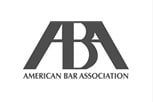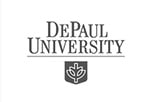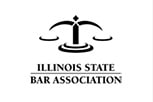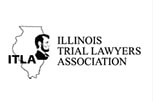Premises Liability Standards Affect Businesses And Homeowners Alike

Premises liability is a set of laws that protect the public from dangerous conditions on public and private property. Customers who slip and fall inside a grocery store can seek damages from the store owner, while pedestrians who become injured falling on a crack in the sidewalk can receive compensation from the city. What many people don’t realize is that premise liability extends beyond commercial and public properties and into private homes.
When a guest or visitor arrives in a home, the homeowner or resident accepts some responsibility for that person’s safety. Homeowners and residents become liable for injuries that occur on their property when they fail to address safety issues or become negligent in the care of their property in a way that causes injury to someone else. A personal injury attorney in Chicago may be able to pursue compensation for the injured party, if the right conditions are met.
Responsibilities Of Property Owners
Premises liability assumes the defendant accepts a duty of care to the visitor or guest of the property. As a result, the property owner has a legal obligation to keep the property safe for the public, but there are some limitations.
An injury on the property does not automatically qualify for compensation. The property owner must have know about the dangerous situation before an injury occurs in order to be held negligent in the injury. Examples include neighbors complaining of a broken limb hanging over the yard, guests pointing out a broken guardrail on an elevated porch, or repeated instances of shingles slipping off of the roof. A personal injury attorney in Chicago can use these complaints as evidence of notice and continued neglect of the property owner’s duty of care.
Not all notices must be presented by a third party. If the condition should have been noticed by the property owner in the normal care or operation of the site, the court may consider the condition of sufficient “constructive notice”.
After notification of the dangerous condition, the property owner must have enough time to address the problem before it can become negligence. As long as the property owner informs guests and visitors of the potentially harmful situation, the property owner fulfills the duty of care during the grace period.
An exception to this rule is a dangerous condition created by the weather. Winter snow and ice are so common in Illinois that the State determined property owners can only be held liable for injuries that come as a result of gross neglect or actions taken by the property owner that make the situation worse.
Qualifying Injuries
A personal injury attorney in Chicago can seek compensation for a variety of injuries directly and indirectly related to the property. The list includes, but is not limited to:
- Slip and fall accidents—Perhaps the most common premise liability claims, slip and fall accidents can be a serious concern when they involve an injury to the head. Poor lighting, tripping hazards, wet floor conditions, and other factors all contribute to the potential for a slip and fall accident.
- Dog bites—Dog breeds of all sizes can cause permanent damage to visitors through bites and scratches. Warning signs for unexpected visitors are a necessary first step, but they are not always enough to cover the dog owner’s liability.
- Swimming pool accidents—Drowning and broken bones are an all too real threat around swimming pools. Homeowners become responsible for the accident if the pool lacks the proper safety signs, malfunctioning equipment, poor lighting or damaged pool ladders.
- Porch collapse—Porches and decks are high risk zones for structural failures and potential liability. A personal injury lawyer in Chicago will examine the integrity of the structure, maintenance, materials used, and the builder’s adherence to construction codes when seeking compensation.
- Drunk driving—In Illinois, if a homeowner serves alcohol to an obviously intoxicated guest, and that person injures another in a drunk driving accident, the homeowner can be held responsible.
Available Compensation
In a premises liability case, compensation is typically limited to economic and non-economic awards.
- Economic: These awards cover the medical costs for the injury, as well as any wages lost as a direct result of the property owner’s negligence.
- Non-Economic: Non-economic damages compensate victims for loss of use or pain and suffering, as well as emotional distress or anxiety caused by the accident.
For a personal injury attorney in Chicago, proving economic damages is much more straightforward than proving non-economic damages, but the attorney should pursue both avenues of compensation.
Time is of the essence when injured parties seek the assistance of a personal injury attorney in Chicago. Illinois has a two year statute of limitations on premise liability cases, but the longer an injured party waits to file, the more difficult it will be to pursue the case.




